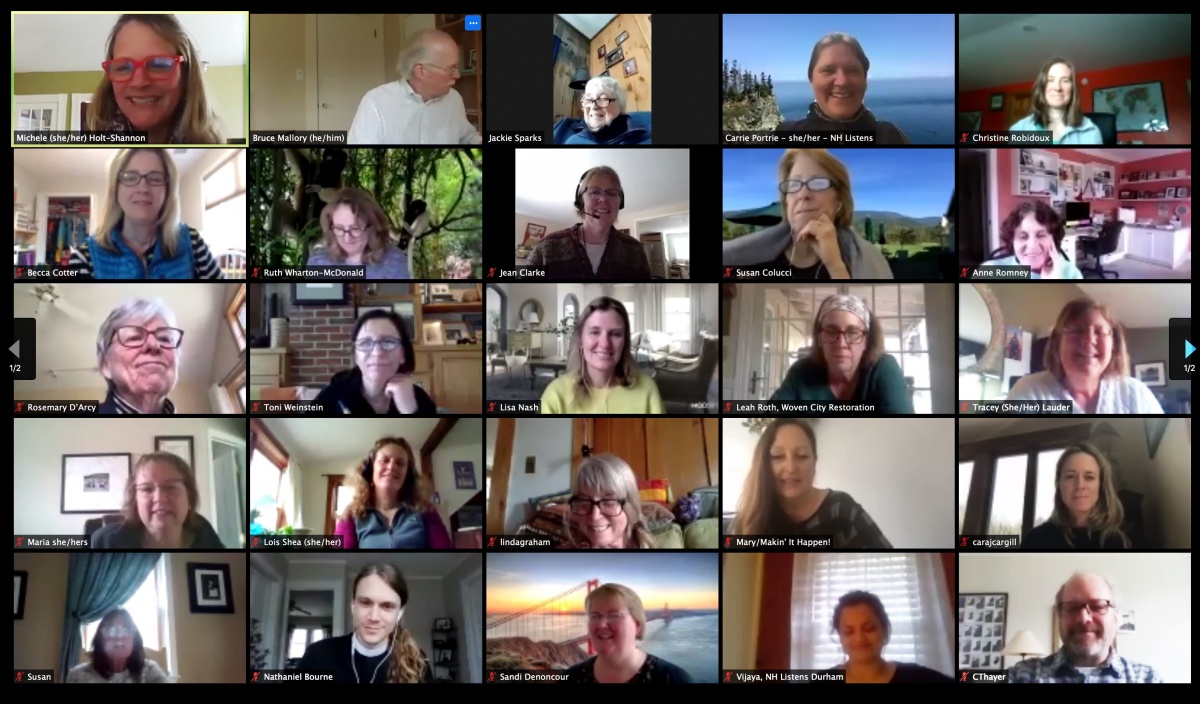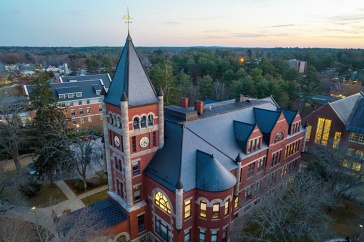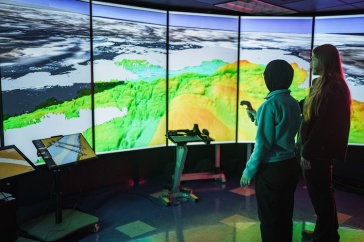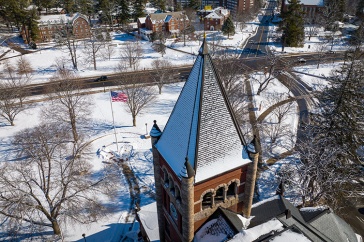Since its founding 10 years ago, the civic engagement group New Hampshire Listens (NH Listens) – a part of the Carsey School of Public Policy – has made face-to-face facilitation, education, and outreach the cornerstone of its service. Before the COVID-19 quarantine began, specially trained NH Listens facilitators would crisscross the state, planning and running small group conversations for a wide range of communities and organizations that ran the gamut from school districts and youth groups to chambers of commerce and service clubs.
And then the pandemic hit.
“NH Listens has always lived on face-to-face dialogue and deliberation,” says Bruce Mallory, co-founder of NH Listens and senior advisor to the group. “In fact, we’ve always resisted using technology and social media as a way for people to exchange ideas, hear each other out, and build solutions.”
"NH Listens has always lived on face-to-face dialogue and deliberation. In fact, we’ve always resisted using technology and social media as a way for people to exchange ideas, hear each other out, and build solutions."
The move to strictly online communication was a bit humbling for the organization, adds Mallory. However, it presented opportunities as well. NH Listens’ recent online education and outreach hasn’t only extended to COVID-19-related topics. The group continues its social equity work, especially as the Black Lives Matter movement has surged in response to racial injustice around the country.
In June, NH Listens co-organized a series of equity and engagement talks for the University of New Hampshire Graduate School. The talks provided a forum for students, educators, and other members of the UNH Graduate community to connect and talk about systemic racism and how to address it at the community level. They are also hosting learning exchanges on systemic racism so people can learn and identify action steps.
Additionally, NH Listens supported the Commission to Study School Funding during the shift to strictly online public meetings and deliberation. Recently, a series of focus groups with New Hampshire school stakeholders was conducted. More than 50 local elected officials and school administrators joined to listen and to share their thoughts on solutions to public school funding.
“We’re running these focus groups right now in a way that wouldn’t have been possible had we insisted on running them at face-to-face locations around the state,” says Mallory. NH Listens is also facilitating all meetings for the Commission and its subgroups to assure that the work can proceed and that the public can listen and make comments in the same way that would happen during in-person meetings.
| The NH Listens team leading an online meeting. |
“For a number of years now, we’ve held online roundtable discussions with our network of statewide facilitators,” describes Michele Holt-Shannon, director and co-founder of NH Listens. “However, these events were always sort of auxiliary in their purpose – they weren’t the core of our offerings and they served more as a way for facilitators to connect and learn from one another.”
NH Listens has more than 250 trained facilitators across the state and upwards of 15 NH Listens Fellows who serve as thought partners and coaches on longer-term projects.
“For now, our entire operation has moved online,” she adds. “At the present, our core focus is on serving New Hampshire as we deal with significant change and, with it – the opportunity for significant improvements. Whether they be community members, institutions, schools, etc. – we are designing and facilitating meaningful online gatherings and learning exchanges.”
With the support of the New Hampshire Charitable Foundation, NH Listens rolled out a series of roundtable discussions in March to help people from around New Hampshire and beyond to better cope with the pandemic, share and support ideas, and learn from one another. These discussion groups have focused on such topics as: how to maintain and build connections during quarantine, how to support essential workers, how to safely return to public spaces as restrictions lift, and how to foster kindness and empathy – and recognize implicit biases – especially those that can be amplified as places open up.
"We’ve hosted seven of these roundtables so far and welcomed hundreds of people to them. This August, we’ll begin offering them again, providing a place for people to connect and share ideas as many towns and schools navigate a very different start to the school year."
“We’ve hosted seven of these roundtables so far and welcomed hundreds of people to them,” says Holt-Shannon. “This August, we’ll begin offering them again, providing a place for people to connect and share ideas as many towns and schools navigate a very different start to the school year.”
“Our work continues today, partly because of the tools we have access to and partly due to our team being able to pivot so smoothly to online,” says Holt-Shannon. “With the tools we use, we can continue to facilitate meetings both big and small, serving others through meaningful dialogue and applying the principles and practices we’ve espoused since day one.”
“One advantage of going online has been the ability to expand our audience,” she adds. “Whereas before we were limited geographically, that’s no longer the case. NH Listens and its facilitators and a growing network of engaged communities can really serve people and communities anywhere.”
You can learn more on the NH Listens website.
-
Written By:
Nicholas Gosling '06 | COLSA/NH Agricultural Experiment Station | nicholas.gosling@unh.edu


















































